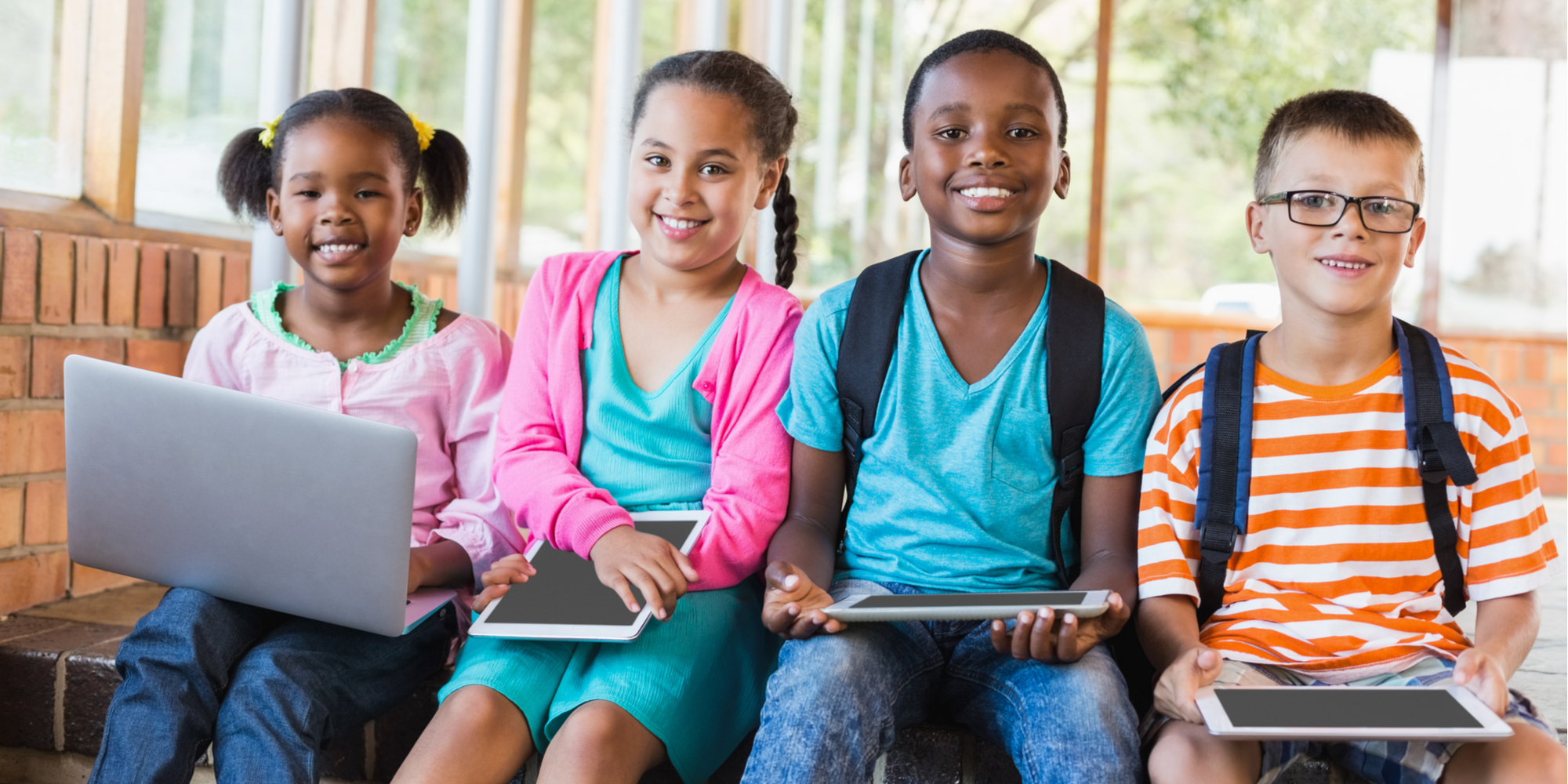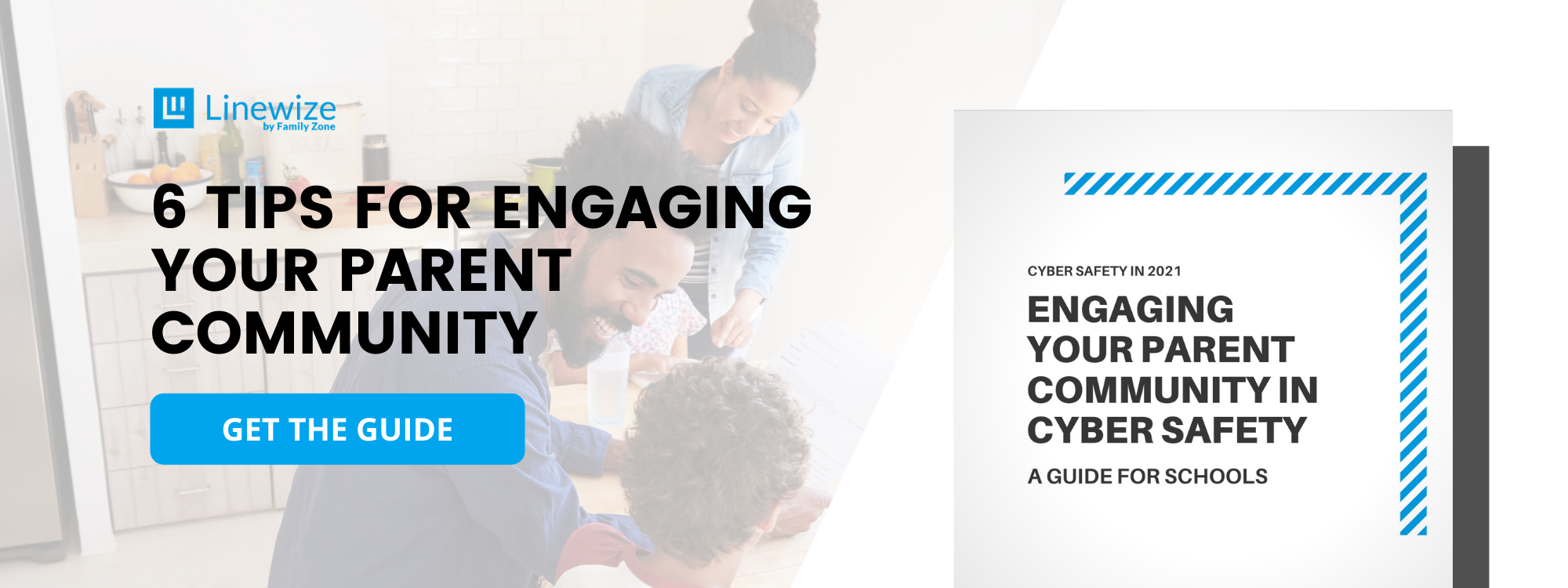School & family partnerships the key to addressing student wellbeing
November 18, 2020

The New Zealand Ministry of Education has stated the wellbeing of young people and partnerships between schools and families as key priorities. We discuss what this means for schools’ approaches to digital learning and student online safety.
On the 13th November 2020, The Ministry of Education released its long-awaited Statement of National Education and Learning Priorities (NELP) for early learning centres, kōhanga reo, schools and kura. The statement sets out the Government’s priorities for education that will ensure the success and wellbeing of all learners.
The NELP highlights the need for schools and kura to partner with families and whānau to ensure learning responds to and recognises individual and community needs, values and culture. It acknowledges the importance of Te Reo Māori and tikanga Māori, the barriers that exist for young people including our Māori and Pacific students and those with learning support needs, and the importance of ensuring school staff receive the professional development needed to support learners.
What they also prioritise is the wellbeing of young people, requiring schools and kura to ensure students are safe from harm, in particular racism, discrimination and bullying.
Related Guide: 6 Tips for Engaging Your Parent Community in Cyber Safety
Safe places of learning include the online world
The NELP places learners, with their whānau, at the centre of education. Schools need to partner with whānau and communities to respond to identified needs, acknowledge identities and cultures, and ensure places of learning are safe, inclusive and free of racism, discrimination and bullying.
Schools must keep in mind that these types of harm are not limited to the physical world. With the use of digital technologies for education, schools need to ensure the digital environments students access are safe places for learning. This can be particularly challenging as the boundaries between home & school and the physical & digital worlds cannot be clearly defined, which is why a partnership with whānau and communities becomes all the more important.
What we know about young people’s online experiences of harm
Bullying, racism and discrimination are not new to New Zealand and sadly are becoming more prevalent given the rapid uptake of technology and the anonymity many of the popular online platforms afford users.
In a 2019 study, Netsafe, as part of the Global Kids Online Network, found a quarter of children have been bothered or upset by something that happened online in the last year. 36% of the participating 13-17-year-olds said they had been exposed to violent images when engaging online and 27 per cent viewed hateful content.
Research into harm online found that 70% of teens in NZ had received unwanted digital communications in the previous year, 74% said it had happened more than once, and 28% of those receiving unwanted communications said the experience had a significant impact on their day to day lives, including the ability to attend school.
Related Blog: Student Self-harm: Warning signs, risks & school responses
Online harm is not limited to bullying, racism and discrimination. It would be remiss to exclude harmful content which is readily available online and can be easily accessed, including pornography. Pornography and how young people access it has changed dramatically with their increased autonomy and engagement with devices and online spaces. The NZ Youth and Porn study released in 2018 found that 25% of young people who have accessed pornography have done so before the age of 12, with 71% of those not actively looking for it when first exposed. With that in mind, it’s imperative that schools and kura ensure they have robust online safety management, monitoring and filtering systems in place to ensure student wellbeing - a key priority of the NELP.
Related Blog: The Porn Curriculum: What it's teaching your students
Key actions for schools and the Government
The Ministry has identified key actions for schools and kura to help achieve the NELP objectives including:
- Talking to young people and their whānau about their experiences of racism, discrimination and bullying and then using learnings to inform next steps.
- Ensuring the skills and attitudes needed are developed in young people with the support of families and whānau.
- Having processes in place to address concerns around racism, bullying and discrimination.
The New Zealand Curriculum and Te Marautanga o Aotearoa’s Key Competencies identify the need for schools to strengthen students’ capacity to participate in the world right now, and our young people have shown us that ‘the world right now’ certainly includes the digital environments students frequent.
They have also identified key actions the Government needs to take to ensure the objective is met, including amending the Education Act to ensure schools and kura prioritise the provision of emotionally and physically safe learning environments for students.
How your school can ensure the safety of online places of learning
While the online space offers incredible opportunities for learning, exploration, communication and creativity, both research and anecdotal information gathered acknowledges that it also increases the chances of risk and harm for its users. Schools have harnessed devices and the online environment as powerful learning tools, and as such also have a responsibility to ensure that those online learning environments are as safe as possible.
While policies and student use agreements are important to your school’s overarching approach to online safety and wellbeing, protective and proactive measures, including ‘real-time’ monitoring and filtering, also play significant roles in ensuring learning environments are safe.
Linewize’s suite of tools for schools & families provides your school with confidence that you are preventing harmful content from being accessed. Furthermore, it also provides the information and insight into student online activity you need to start conversations with students who exhibit harmful behaviours.
Related On-Demand Webinar: How Linewize Can Support Student Digital Wellbeing
By partnering with Linewize your school has the ability to tailor filters and settings, depending on the age and stage of students, while still allowing access to content and platforms needed for learning. The comprehensive network-level filtering allows you to restrict access to websites and apps based on category, time of day, network location and device, while also providing ‘real-time’ monitoring of student online behaviour.
Most critically, this increased awareness of student online interactions and behaviours enables your pastoral teams to identify young people at risk, allowing them to engage early with those students, provide wrap around support and ultimately prevent harm. Anecdotally, schools have found this to be a game-changer for the pastoral care and wellbeing of students.
Related Blog: Managing student wellbeing online
You can also apply school-wide expectations around online activity and the insights into student activity, trends and challenges allow you to proactively plan for and provide targeted learning for your students.
Supporting students outside of school hours
As mentioned, the NELP emphasises the need for schools and kura to partner with family and whānau to equip every learner/ākonga to build and realise their aspirations. With technology and the online world becoming ever more intertwined in the daily lives and futures of young people, parents need to be able to adequately support their children technologically. But when it comes to devices, the online environment and ultimately online safety, sometimes parents can feel a little overwhelmed.
As a Linewize partner school, you are able to take a leadership position in your community and provide your parents, families and whānau with the Family Zone app to help demystify online safety. The app provides insights into how young people engage when they are online and shows your parents, step-by-step, how they can support their children online, complimenting the online safety management tools used at school.
The app provides families with the same level of oversight and flexible filtering that schools and kura can utilise, as well as providing access to advice and support from online safety experts. Settings can be customised in ‘real-time’ depending on what’s needed and parents can manage young people’s devices wherever they go, regardless of the network they connect to.
Topics: partner school program, wellbeing, digital wellbeing, News, whānau, ministry of education, families
Would you like some more information? Or a demo?
Get in touchSubscribe to our newsletter
Popular posts
Recent posts
What Student Digital Risks Can Your School Expect in 2024?
Helping Australian Schools Better Safeguard Students This Academic Year
Navigating harmful content online: A guide to managing children’s exposure to distressing content online
In light of current international events, young people may come into contact with distressing online content. This article has been written ...
Safer Internet Day 2023 - Easy ways schools can get involved
Tuesday, 7th February 2023, is Safer Internet Day, an excellent opportunity for your school to educate, inspire and empower your students ...
